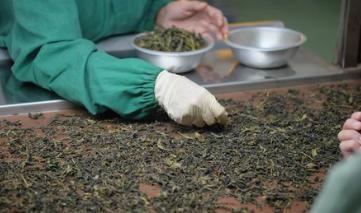
Tea is one of the three most widely consumed beverages in the world. Fresh tea contains about 75% water and 15% dry matter, while organic compounds account for 93%-96% of the dry matter of tea and inorganic substances account for 4%-7%. The dry matter of tea consists of polyphenols, proteins, carbohydrates, lipids, alkaloids, amino acids, pigments, vitamins, minerals, etc., which are the source of tea's nutritional value and health benefits. Tea is made from the leaves and buds of the Camellia sinensis, which undergoes a series of production processes such as fixing, withering, kneading, fermentation, wheeling, and drying to exude aroma, flavor and other attributes and reserve nutrients.
The dry matter content (DMC) is an important indicator for evaluating the quantity and quality of tea during the production process. As a recognized leader in tea testing, Lifeasible can develop the best tea dry matter content testing solutions to help customers test the dry matter content of imported and exported tea ground samples to assess the quantity and quality of tea.
We offer a standard method for preparing and determining dry matter content of tea ground samples based on what remains when ground specimens are heated to a constant amount under specified conditions. The specific steps are as follows:
(1) Sampling. Samples are taken according to international standards.
(2) Specimen preparation. First, grind a small specimen with a grinder and discard it. Then, grind the sample enough to supply the chemical analysis and dry matter determination needs into a large glass bottle filled with appropriate. Specimen grinding fineness to all through the 630 μm standard sieve shall prevail.
(3) Test. Weigh a representative sample of ground specimens into the oven, heated at (103 ± 2)°C to remove water to constant weight, determining its dry matter content.
We have the necessary instruments and equipment for the tea dry matter content testing method, including but not limited to:
In addition, we provide near and middle infrared spectroscopy coupled with wavelet-based data mining algorithms for fast and non-destructive detection of dry matter content in tea processing. This method can meet the modern tea processing industry's needs for online measurement of tea dry matter content. This method can meet the needs of the modern tea processing industry for online measurement of tea dry matter content.
We can determine the dry matter content not only in ground tea samples but also in complete tea samples such as semi-finished tea, finished tea, and fresh tea. If you are interested in our solutions, please contact us for technical consultation and quotation.
Reference
Lifeasible has established a one-stop service platform for plants. In addition to obtaining customized solutions for plant genetic engineering, customers can also conduct follow-up analysis and research on plants through our analysis platform. The analytical services we provide include but are not limited to the following:
Get Latest Lifeasible News and Updates Directly to Your Inbox
Mechanisms Regulating Plant Chloroplast Biogenesis
April 15, 2025